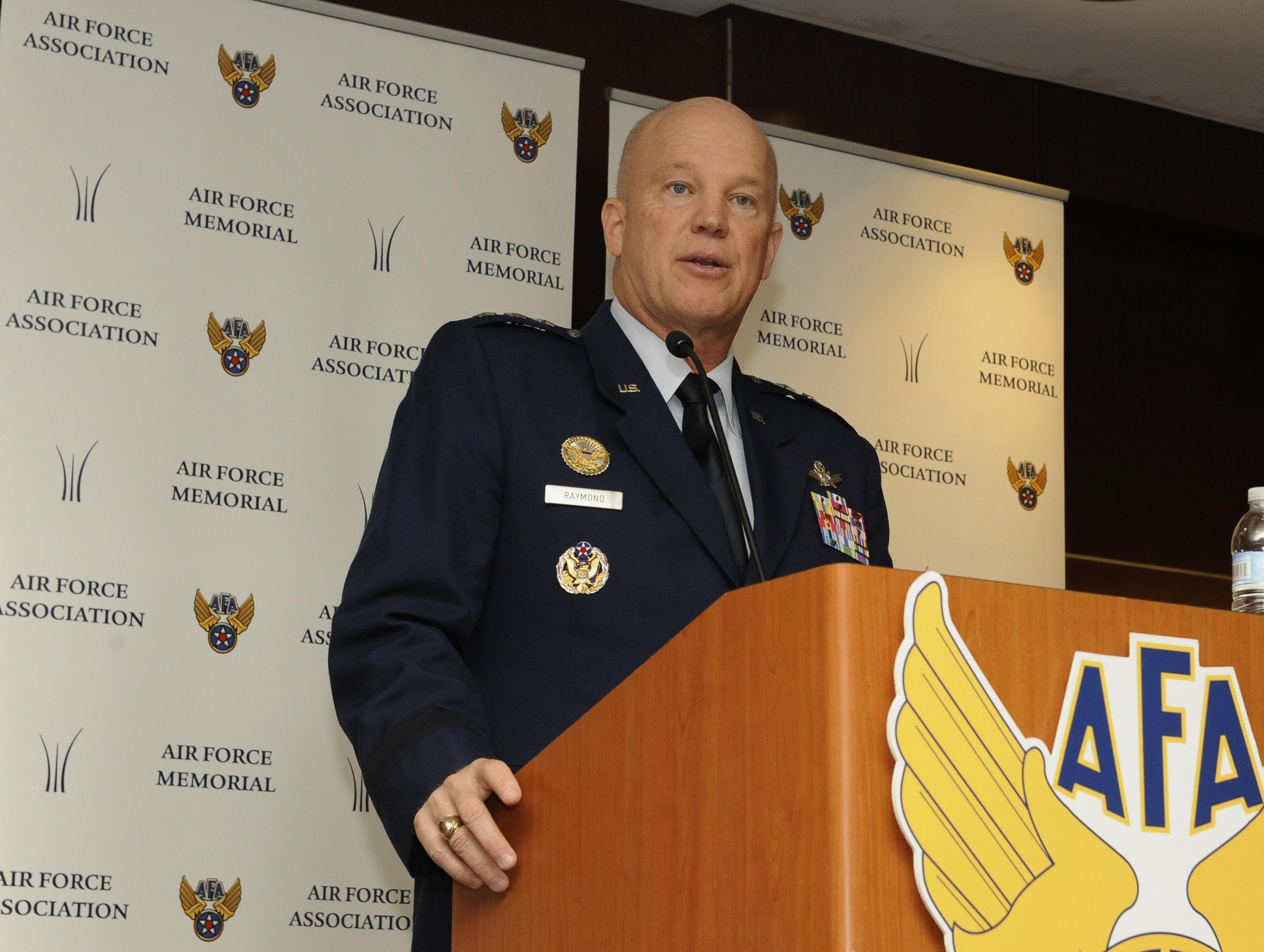Secretary of the Air Force Command Information / Published
January 21, 2016
WASHINGTON (AFNS) -- Air Force Deputy Chief of Staff for
Operations Lt. Gen. John Raymond addressed the Air Force Association on
innovations that took place during Operation Desert Storm at the first AFA
breakfast of the year Jan. 20 at the Key Bridge Marriott in Arlington,
Virginia.
“The anniversary of Operation Desert Storm affords us an
excellent opportunity, which brings to life the vision statement of the U.S.
Air Force,” Raymond said. “The world’s greatest Air Force -- powered by Airmen
and fueled by innovation.”
The Air Force celebrated the 25th anniversary of Desert
Storm on Jan. 16. The occasion offered an opportunity to reflect upon the first
conflict in history to make comprehensive use of stealth and space systems
support capabilities against a modern, integrated air defense.
With the help of the total force model, the Air Force made
several contributions that led to one of the most successful air campaigns in
U.S. history.
Desert Storm is largely recognized as the first space war.
It was the first war where operationalized strategic assets were used for
operational and tactical advantages. The Defense Support Program helped add to
the advantage by developing missile warning satellites used to detect and
geolocate Scud missile launches in theater.
Just as it is important to reflect on previous conflicts,
Raymond noted the Desert Storm anniversary presents the opportunity to compare
and contrast the 1991 and 2016 versions of the Air Force.
“Today we are the smallest, busiest (and) oldest Air Force,
operating in the most complex and strategic environment that it has ever
faced,” he said.
The Air Force is comprised of fewer aircraft than in 1991,
but today’s force is fully integrated. Airmen from the Air National Guard and
Reserve maintain 55 percent of the Air Force’s aircraft. Raymond said without
the total force Airmen completing day-to-day missions and capabilities
professionally, operations would not be successful.
“As we sit here this morning, our Airmen are fully engaged
all over the world,” Raymond said. “Airpower continues to be the force of
choice countering the violent and extremist threats.”
Innovation is still a major part of Air Force operations.
During the period of Desert Storm there was no such thing as a remotely piloted
aircraft. Today, the RPA program represents the weapons system with the largest
number of pilots and increasing demands for intelligence, surveillance and
reconnaissance missions, thanks to emerging requirements and combatant
commander needs.
“The Air Force has an incredible story to tell and that
story is innovation, which has been written by incredible Airmen who operate
those capabilities for us each and every day,” Raymond said.









No comments:
Post a Comment